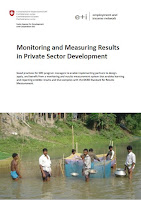Source : OIF
"Ces dernières années, des structures d’accompagnement se sont multipliées, particulièrement en Afrique de l’Ouest, et apportent une réponse locale pour combler certaines lacunes des écosystèmes entrepreneuriaux (politiques publiques insuffisantes, manque d’accès aux financements, de culture entrepreneuriale, de soutien du secteur privé, etc.)
Leur objectif est d’accompagner les entrepreneurs afin qu’ils soient porteurs d’innovations et créateurs d’emplois stables et décents.
Des services qui incluent souvent du conseil, un accès à des locaux équipés et connectés, un accès à un réseau, ainsi qu’un appui pour trouver des financements.
De ce fait, ces structures sont également des sources d’opportunités pour différents types de partenaires et investisseurs : institutions publiques, financiers, instituts de recherche, multinationales, etc.
Réalisé par la Banque mondiale, en partenariat avec l’OIF et le collectif Afric’innov, le guide pratique « Enjeux et opportunités des incubateurs en Afrique de l’Ouest » met en perspective ces différents aspects et émet des recommandations pour les décideurs."
Plus d'info et télécharger le guide
"Ces dernières années, des structures d’accompagnement se sont multipliées, particulièrement en Afrique de l’Ouest, et apportent une réponse locale pour combler certaines lacunes des écosystèmes entrepreneuriaux (politiques publiques insuffisantes, manque d’accès aux financements, de culture entrepreneuriale, de soutien du secteur privé, etc.)
Leur objectif est d’accompagner les entrepreneurs afin qu’ils soient porteurs d’innovations et créateurs d’emplois stables et décents.
Des services qui incluent souvent du conseil, un accès à des locaux équipés et connectés, un accès à un réseau, ainsi qu’un appui pour trouver des financements.
De ce fait, ces structures sont également des sources d’opportunités pour différents types de partenaires et investisseurs : institutions publiques, financiers, instituts de recherche, multinationales, etc.
Réalisé par la Banque mondiale, en partenariat avec l’OIF et le collectif Afric’innov, le guide pratique « Enjeux et opportunités des incubateurs en Afrique de l’Ouest » met en perspective ces différents aspects et émet des recommandations pour les décideurs."
Plus d'info et télécharger le guide











